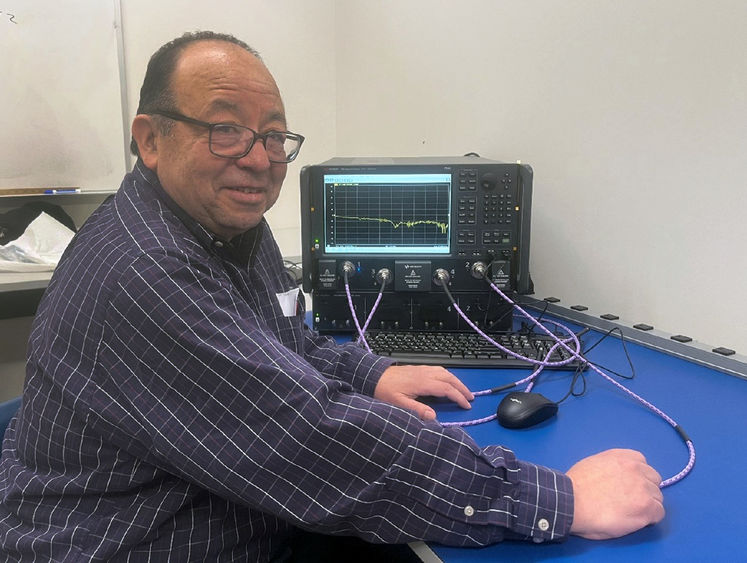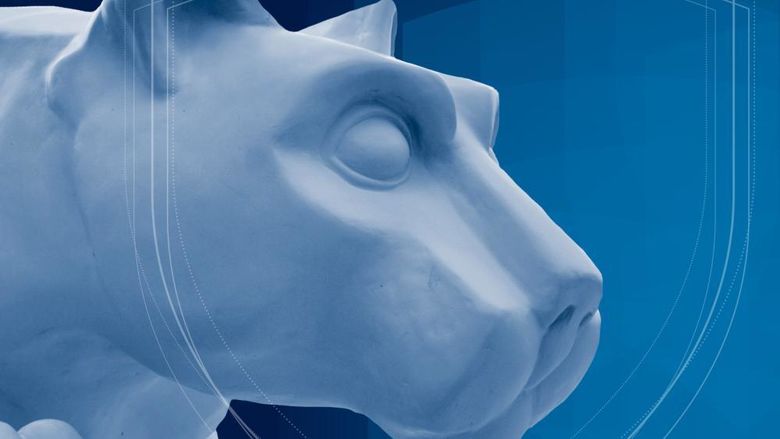
Penn State Harrisburg’s School of Science, Engineering, and Technology was awarded a $282,770 grant from the Office of Naval Research to help purchase a high-end instrument that will support research at the college’s Center for Signal Integrity. Aldo Morales, the center's co-director, is shown here with the new high-end vector network analyzer.
MIDDLETOWN, Pa. — Penn State Harrisburg’s School of Science, Engineering, and Technology was awarded a $282,770 grant from the Office of Naval Research (ONR) to help purchase a high-end instrument that will support research at the college’s Center for Signal Integrity.
Signal integrity is the engineering field that analyzes high-speed electrical interconnects — structures that connect device elements — with the overall goal of improving the design, reliability and performance of digital systems.
Known as the “connector capital of the world,” the Harrisburg metropolitan area is home to more than 15 electrical connector companies, and the region holds an estimated 80% of the U.S. connector market, said the center’s co-directors, Aldo Morales and Sedig Agili. According to the Bishop Report, which is produced by a market research firm specializing in the global connector market, the worldwide connector industry is valued at $84 billion. North America accounts for about 22%, or nearly $18.5 billion, of the global market.
The Center for Signal Integrity is the only academic unit in the central Pennsylvania region dedicated to partnering with the area’s connector companies in product development by fostering collaboration among industry and the college’s engineering faculty and students.
The funding from the ONR’s Defense University Research Instrumentation Program (DURIP), coupled with $60,000 from the college, went toward securing a new, high-end vector network analyzer (VNA) — an instrument that characterizes the electrical performance of electrical and electronic devices by measuring the magnitude and phase of signals they emit and receive.
The new instrument is the same level of equipment used in the signal and power integrity industry, Morales said, explaining that it will enable collaboration with industry and help prepare Penn State Harrisburg students since they will learn on the same kind of equipment they will use in the field.
The VNA will also be used to support research being done by members of the center, such as research on the dielectric characterization of radome materials — which protect radar antenna or other equipment from environmental factors, while letting the antennas receive and transmit signals without degradation — as well as the application of artificial intelligence to help improve signal integrity.
“Our goal is to cement the research initiatives started at the Center for Signal Integrity at Penn State Harrisburg and advance them to the next level,” said Morales, principal investigator and professor of electrical engineering.
Agili, co-principal investigator and professor of electrical engineering, agreed and also pointed to the future of education in the field.
“This funding will open more opportunities for undergraduate/graduate research and will assist in the development of new courses to train the local workforce in the usage of the equipment,” Agili said.
Morales and Agili will also continue to collaborate with faculty at Penn State University Park, making use of the instrument to advance ongoing and future projects. Additionally, they said, the instrument will broaden the college’s work with local connector companies, such as Samtec, Amphenol and TE Connectivity, for testing product solutions with their research and development teams.




